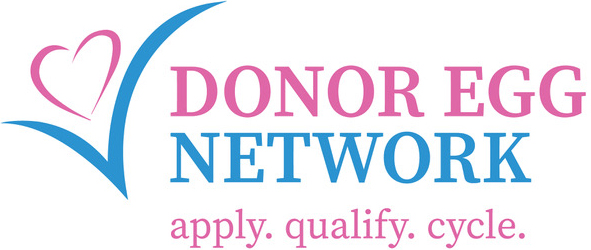5 Common Questions Asked by Egg Donors

It’s natural for prospective egg donors to have lots of questions. Your generous willingness to donate your eggs is much appreciated. We completely understand your desire to ensure your well-being is the first priority during and after the egg donation process.
As one of the nation’s premier egg donor networks, we do everything we can to educate and inform prospective donors. We only want women to donate eggs if they feel 100 percent confident in their choice. Feel free to contact us anytime to ask your questions or discuss any concerns you may have.
5 Common Egg Donation Questions Answered
Here are five of the most common questions women ask us when considering donating their eggs.
1. Will donating my eggs impact my future fertility?
Most women donating eggs plan to have a family of their own someday. As a result, the top question we get is from women concerned that “giving up” their eggs now may mean not having enough eggs when they’re ready to conceive. Fortunately, this is not a concern at all.
Egg donation has been performed in the United States for more than 40 years. Studies and experience show that egg donation does not impact your future fertility. An initial evaluation of the donor’s Anti-Mullerian Hormone (AMH) level is a strong predictor of your “current” fertility level.
Anti-Mullerian hormone or AMH levels are indicators of a woman’s egg reserves compared with women of the same age. If AMH levels are in the low range, it may suggest that a woman’s fertility window is “shorter” than average. Although somewhat rare, women with a low AMH are not good candidates for egg donation.
An egg donation cycle does not take all of a woman’s eggs or even her “best” ones. An egg donation cycle only works with the eggs that are available for the month the woman’s eggs are being retrieved. All other eggs during that cycle would dissipate regardless. The next menstrual cycle, an entirely new set of eggs are available.
2. Do I have to be “perfect” to donate my eggs?
We aren’t looking for perfect. Couples or individuals in need of egg donors look for all types and characteristics. However, there are guidelines we follow.
Donors are required to meet physical, genetic and psychological guidelines set forth by the
American Society for Reproductive Medicine (ASRM). These include:
- Age of majority – typically age 21 to initiate an egg donation cycle, although ASRM guidelines provide age 34 as the upper age limit, most clinics accept donors up to age 32
- Having a healthy Body Mass Index (BMI), ideally between 20 – 28
- Pass a thorough physical exam including a review of your medical and reproductive history
- Pass a psychological evaluation to ensure readiness to participate
- Genetic evaluation to determine inherited genetic risks
- A clear understanding of what it means to donate your eggs, knowing you have no legal association with any future child(ren) conceived using your eggs
Perfection is not required, but being of sound body, mind, and spirit certainly is! You can Click Here for a more detailed list of egg donor requirements.
3. Will I know who chooses my eggs?
The short answer is “sometimes.” This depends on you and your recipients’ desire. We follow your wishes with regard to the amount of privacy you would like to maintain during or after your cycle is complete.
However, with the prevalence of genetic testing and digital genealogy, the genetic link between you and any children conceived using your eggs will most likely be known. This does not mean that you will have future contact. Consumer DNA kits are designed to “connect the DNA dots.” Any future relationship between you and your donor family(ies) is completely up to you. We are seeing an understandable trend of donor-conceived children wanting to know more about their donor. It’s human nature to want to know our familial and genetic histories.
That said, you have absolutely no legal or financial responsibility for any children conceived using your eggs. The contracts and agreements between individuals and couples who select donor eggs and the egg donor banks are very clear.
4. Who is most likely to use my eggs?
In most cases, donor eggs are used by women or couples when the woman’s infertility diagnosis is the most likely reason preventing pregnancy. This could be because the woman has a low ovarian reserve, is a known carrier of a chromosomal/genetic disorder, or who has undergone medical treatment that has compromised her fertility.
Donor eggs are also used by same-sex couples and other members of the LGBTQ population who need an egg donor for IVF with a gestational carrier.
5. How many times can I donate my eggs?
ASRM guidelines suggest that donors may participate in up to six egg donation cycles. Again, your well-being is always a top priority. While the egg donation process is safe and any given egg donation cycle carries less than 1 percent risk for a significant event or side effect, it makes sense that there is an established limit for egg donation.
Do you have more questions about egg donation?
Don’t hesitate to get in touch with us here at the Donor Egg Network online or by calling us at (425) 296-7227. We look forward to meeting you and providing all the information necessary to feel comfortable with your decision.


